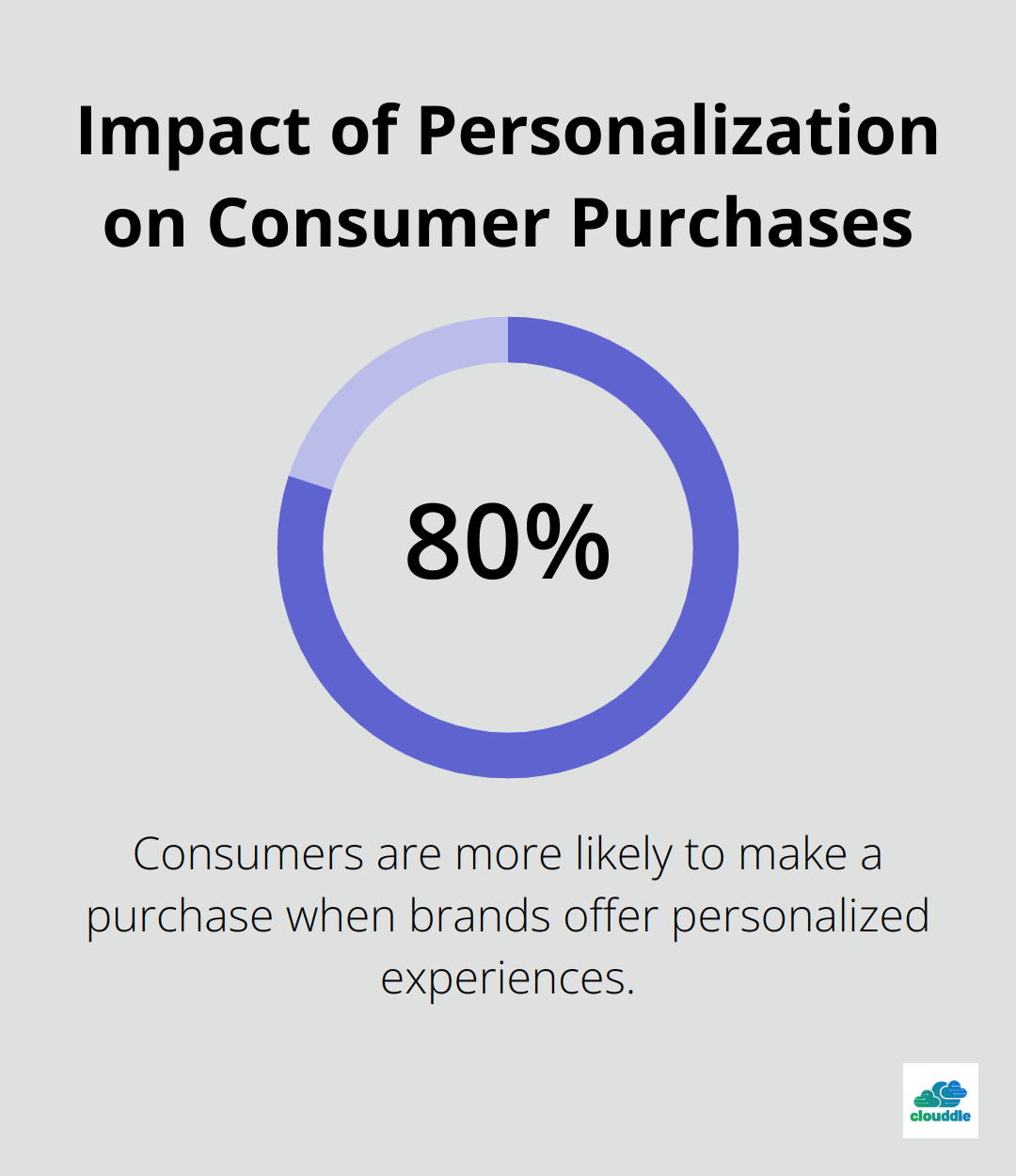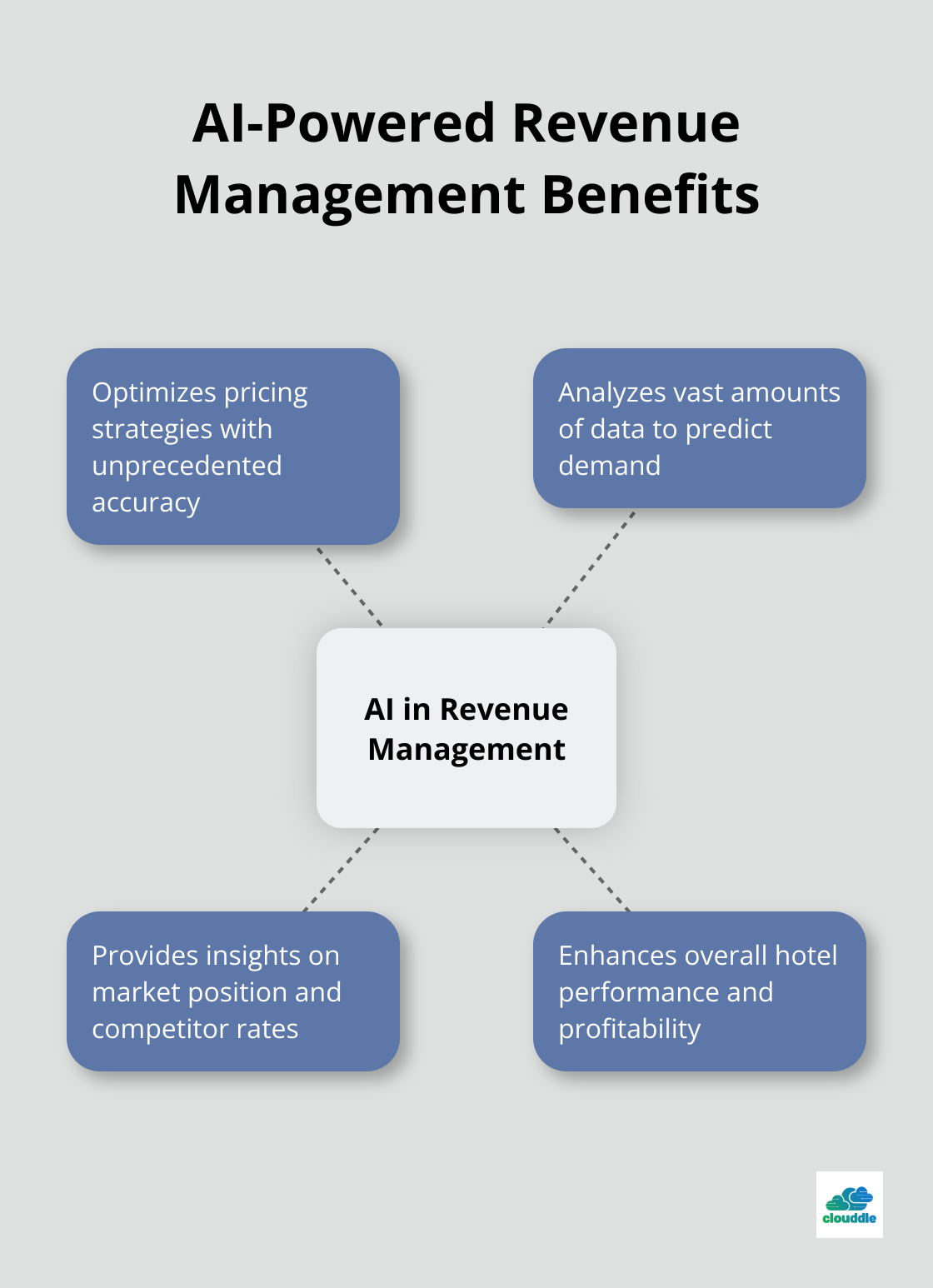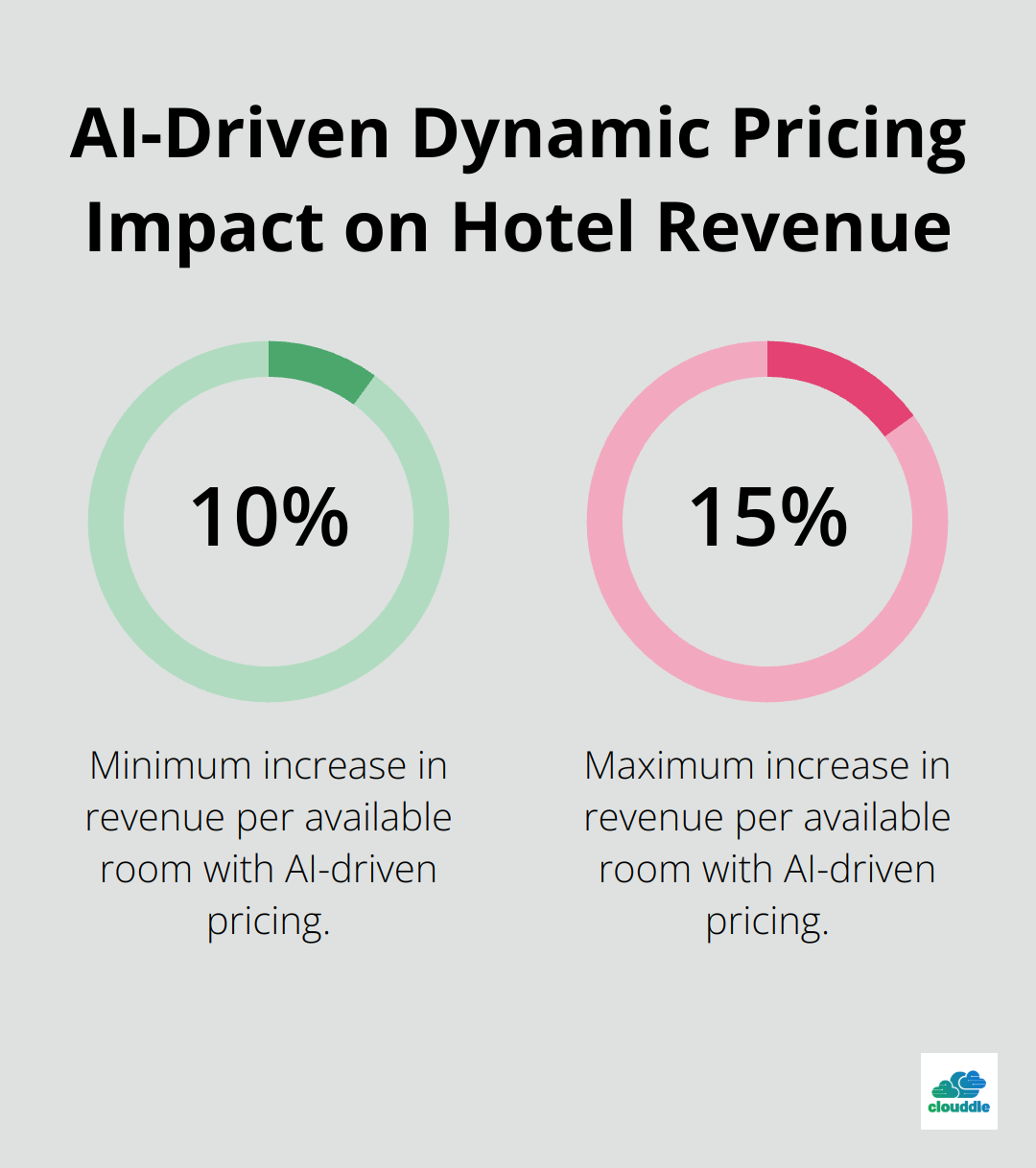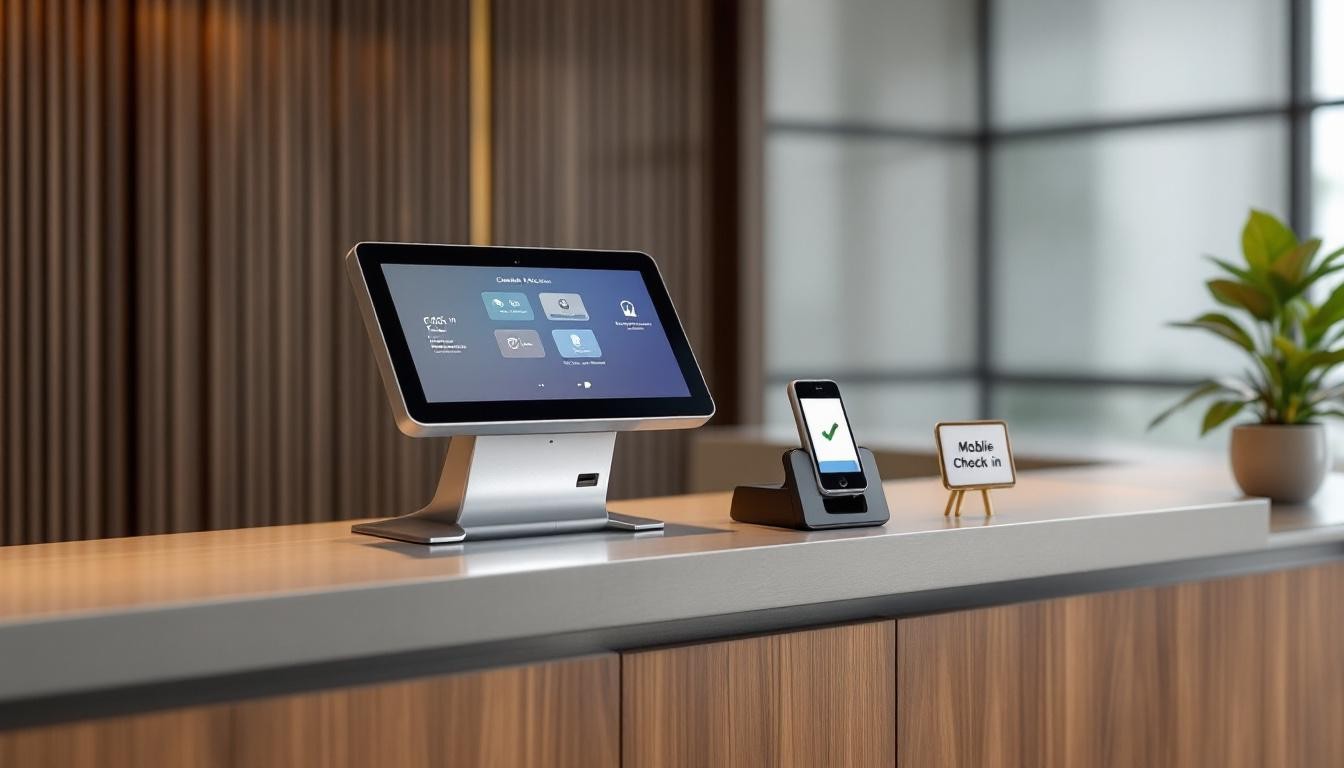The importance of technology in the hospitality industry cannot be overstated. From check-in to check-out, tech innovations are reshaping every aspect of the guest experience.
At Clouddle, we’ve witnessed firsthand how digital solutions are revolutionizing hotel operations, enhancing customer satisfaction, and driving business growth. This blog post explores the transformative power of technology in hospitality and its far-reaching implications for the future of the industry.
How Technology Enhances Guest Experiences
Technology has revolutionized the hospitality industry, transforming every aspect of the guest journey. Modern travelers expect more than just a comfortable bed; they demand personalized, seamless experiences from booking to check-out.
The Power of Personalization
Personalization has become a necessity in hospitality. Hotels now use data to create tailored experiences for each guest. The Hilton Honors app exemplifies this trend, allowing guests to select their exact room, adjust temperature settings, and unlock their door before arrival. This level of customization not only boosts guest satisfaction but also increases loyalty. A study by Epsilon reveals that 80% of consumers are more likely to make a purchase when brands offer personalized experiences.

Mobile Apps: Your Digital Concierge
Mobile apps have evolved into essential tools for hotel stays. These digital concierges put the entire hotel at guests’ fingertips, from ordering room service to booking spa appointments. The Marriott Bonvoy app, for instance, enables guests to chat with hotel staff, make service requests, and check out without picking up the phone. This convenience improves guest satisfaction and reduces strain on hotel staff.
Smart Rooms: The Future is Now
Smart room technology has transformed the guest experience. Voice-activated controls allow guests to adjust lighting, temperature, and even order room service hands-free. The Wynn Las Vegas (a property that has equipped all 4,748 of its rooms with Amazon Echo devices) allows guests to control various room features with simple voice commands. This technology not only enhances guest comfort but also helps hotels save on energy costs. A study by Schneider Electric indicates that smart room controls can reduce energy consumption by up to 30%.
Balancing Tech and Human Touch
While these technologies offer exciting possibilities, hotels must implement them thoughtfully. The goal is to use technology to free up staff to provide more personalized, attentive service. Clouddle (a leader in hospitality technology solutions) works closely with clients to ensure that technology enhances, rather than replaces, the human touch that’s vital to hospitality.
As we move forward, it’s clear that technology will continue to shape guest experiences. The next frontier lies in streamlining hotel operations, where advanced systems are making waves in property management, revenue strategies, and inventory control.
Streamlining Hotel Operations with Advanced Systems
Cloud-Based Property Management Revolution
Cloud-based property management systems (PMS) have transformed hotel operations. These systems centralize all aspects of hotel management, from reservations to housekeeping, in one accessible platform. The integration of digital technology in hotel management aims to improve operational efficiency and visitor satisfaction.
Real-time updates across departments stand out as a key benefit. When a guest checks in via a mobile app, the system immediately notifies housekeeping to prepare the room. This seamless communication reduces wait times and boosts guest satisfaction.
Cloud PMS also offers unmatched flexibility. Staff can access the system from any location, which enables remote work and improves response times to guest needs. (This flexibility proved invaluable during the COVID-19 pandemic, allowing hotels to maintain operations with reduced on-site staff.)
AI-Powered Revenue Management
Artificial Intelligence (AI) has revolutionized revenue management, allowing hotels to optimize pricing strategies with unprecedented accuracy. AI algorithms analyze vast amounts of data to predict demand and set optimal rates. A study concluded that integrating AI into hotel revenue management and pricing strategies significantly enhances performance.

AI doesn’t just set prices; it helps hotels understand their market position. By analyzing competitor rates and market trends, these systems provide insights that allow hotels to stay competitive without sacrificing profitability.
Automated Inventory Control
Efficient inventory management is essential for hotel profitability, and automation leads the charge. Automated systems track everything from toiletries to linens, ensuring optimal stock levels and reducing waste.
For example, when a guest uses items from the minibar, the system automatically updates the inventory and alerts staff to restock. This real-time tracking minimizes manual checks and prevents stockouts that could disappoint guests.
In food and beverage operations, automated systems have cut food waste in some hotels. These systems accurately predict demand based on historical data and upcoming events, helping kitchens order just the right amount of perishables, which reduces costs and improves sustainability.
As hotels continue to embrace these advanced systems, they unlock new levels of efficiency and guest satisfaction. The next frontier in hospitality technology lies in leveraging data for better decision-making, which we’ll explore in the following section.
How Data Drives Hospitality Success
Unlocking Guest Preferences for Targeted Marketing
Data analytics has become a powerful tool for hotels to create detailed guest profiles. These profiles track room preferences, dining habits, and other key information. This data enables highly targeted marketing campaigns that resonate with guests.
A luxury hotel chain analyzed guest data and found that 35% of their business travelers also booked leisure stays. They used this insight to create a targeted campaign for bleisure travel (resulting in a 20% increase in extended-stay bookings).
Hilton used data analytics to personalize email marketing. They tailored content based on guest preferences and past behavior. This approach led to a 30% increase in email open rates and a 20% boost in click-through rates.
Predicting Maintenance Needs Before They Arise
Predictive maintenance has revolutionized hotel operations. Hotels now analyze data from sensors and equipment logs to anticipate when maintenance is needed. This proactive approach prevents costly breakdowns and guest inconveniences.
A study by Deloitte found that predictive maintenance can reduce maintenance costs by 25-30%, reduce unplanned outages by 70-75%, and extend equipment lifetime. For hotels, this translates to significant savings and improved guest satisfaction.
An international hotel group implemented predictive maintenance for their HVAC systems. They reduced unexpected breakdowns by 25% and cut energy costs by 15% (all while improving guest comfort).
Optimizing Staff Performance with Real-Time Metrics
Data-driven staff optimization is essential to deliver exceptional service while managing costs. Real-time performance metrics allow managers to make informed decisions about staffing levels and task allocation.
The Ritz-Carlton uses a system that tracks guest requests and response times. This data helps them optimize staff deployment, ensuring quick response times during peak periods. As a result, they’ve seen a 15% improvement in guest satisfaction scores related to staff responsiveness.
A boutique hotel chain implemented a data-driven housekeeping system. They analyzed room occupancy patterns and guest preferences to optimize cleaning schedules. This approach reduced labor costs by 10% while maintaining high cleanliness standards.
The Role of Artificial Intelligence in Data Analysis
Artificial Intelligence (AI) has transformed how hotels process and interpret vast amounts of data. AI algorithms can identify patterns and trends that humans might miss, leading to more accurate predictions and better decision-making.
For example, AI-powered revenue management systems can analyze market conditions, competitor pricing, and historical data to set optimal room rates in real-time. According to McKinsey, hotels that implemented AI-driven dynamic pricing strategies saw an average increase of 10-15% in revenue per available room.

Ensuring Data Privacy and Security
As hotels collect and use more guest data, ensuring privacy and security has become paramount. Hotels must implement robust data protection measures to comply with regulations like GDPR and maintain guest trust.
Clouddle, a leader in hospitality technology solutions, offers advanced security services that protect guest data while allowing hotels to leverage its benefits. Their solutions include encrypted data storage, secure network infrastructure, and regular security audits to identify and address potential vulnerabilities.
Final Thoughts
Technology has reshaped the hospitality landscape, transforming guest experiences and hotel operations. From personalized check-ins to AI-driven revenue management, digital innovation impacts every aspect of the industry. The importance of technology in the hospitality industry cannot be overstated, as it enhances guest satisfaction, streamlines operations, and opens new avenues for growth.
Hotels that embrace digital transformation position themselves to meet evolving guest expectations and optimize operations. However, implementing new technologies requires careful planning, investment, and a commitment to ongoing adaptation. Clouddle plays a crucial role by providing comprehensive technology solutions tailored to the hospitality industry.
The hotels that thrive will view technology as an integral part of their overall strategy. They will use it to enhance the human touch that’s at the heart of hospitality, creating experiences that are both high-tech and high-touch. In this rapidly evolving digital age, staying ahead means reimagining what hospitality can be in a connected world.


